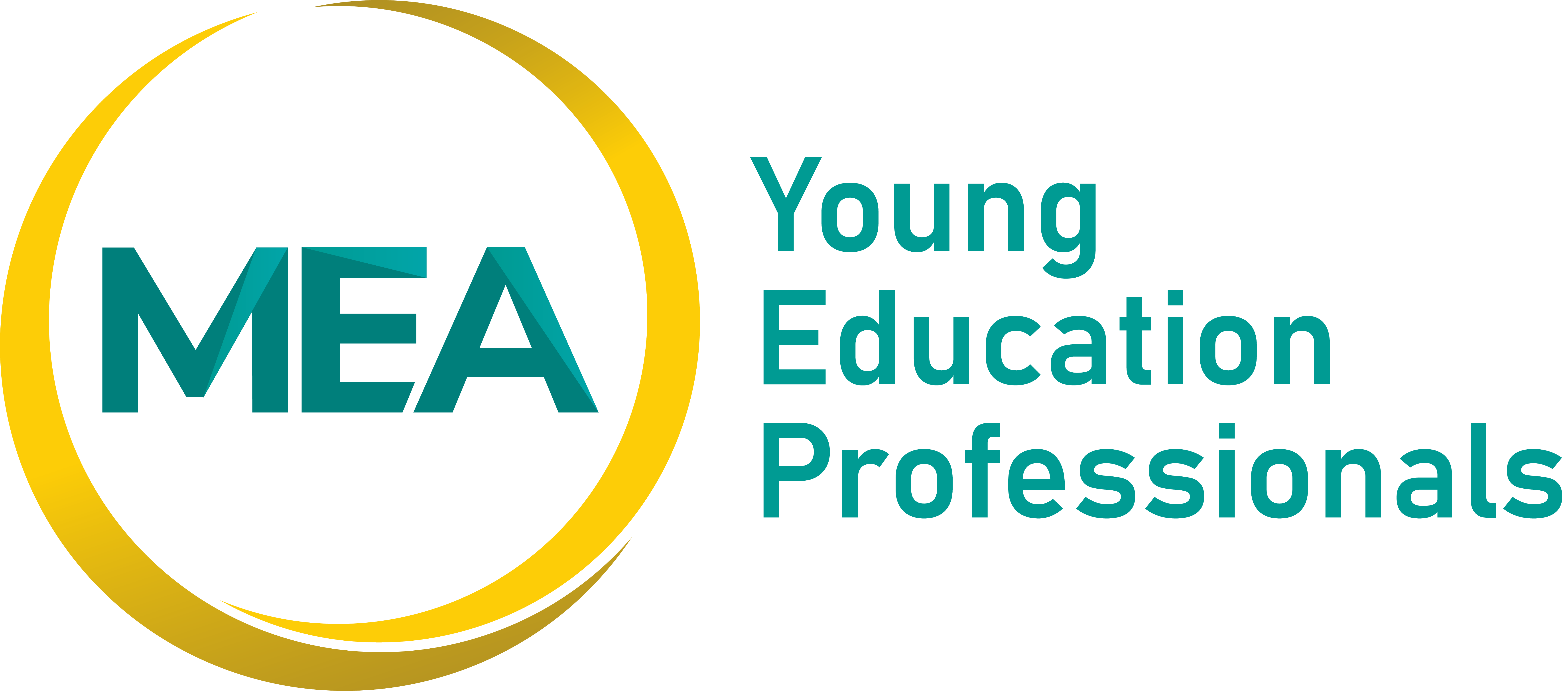Early Career Educators
Get Involved!
The Young Education Professionals of the Maine Education Association (YEP-MEA) knows you need support when you are just entering the profession. That’s why it has a group dedicated to early career educators. Interested in free professional development? Have an idea you want to share with other early career educators? Want to network and socialize? There are multiple opportunities for early career educators to have their voices heard on a local, state and national level when you engage in the Association. Now is the time to be part of the conversation.

EARLY CAREER EDUCATOR RESOURCES
Parents As Partners
As a teacher, you know a key ingredient to student success is parental involvement. It is important to foster a good relationship with your students’ parents so parents become partners in their child’s education. Introduce your classroom to parents Most successful teacher-parent teams begin with communication before there’s a specific need for a meeting. Don’t wait for “open house” or parent conferences. Begin communications by calling parents within the first two weeks of school. Extend an invitation to join in creating a successful learning experience for their student. Many teachers send a letter to all parents at the beginning of the school year. The sample letter to parents at right was drafted by a fifth grade teacher and sent at the beginning of each school year. Get your principal’s approval of any letter to parents before sending it home. If the student comes from a home where English is not the primary language, seek the assistance of ESL teachers, foreign language teachers or other community resources for translation and communications assistance. Build rapport with parents Actively involve parents and extended family Take the initiative to involve parents. They want to help their children learn. When parents are not available reach out to grandparents, foster parents or community volunteers who are serving as mentors or “big brothers” and “big sisters” to your students. Encourage parents to provide their students with a quiet study area, a good breakfast, a time to read together, and guidance, supervision over television and computer habits, and plenty of sleep. Give parents and grandparents a chance to share their talents and experiences in the classroom, on field trips, or before school-wide audiences. Give parents a hands-on role in their child’s work and experiences in school. Require parents to sign homework and permission slips for activities. Join your school’s parent-teacher organization and encourage your students’ parents to join.
Sample Letter To Parents/Guardians
Dear Parents,
I am your child’s fifth grade teacher this year, and I would like to welcome you to our classroom community. I have very high expectations for your child, and will be doing all I can to help your child achieve those expectations. You can help:
- Provide your child with a place to study and read to and with him or her.
- Ask your child about school every day. If your child has homework or special projects to do at home, make sure they are completed.
Please feel free to call me at school and to come visit our class. I look forward to working with you and your child this year. Sincerely,
Union Representation
In the course of your career there may be a time when individuals (parents, students, or colleagues) lodge complaints about you or issues arise that affect your personal working conditions. A complaint or issue may lead an administrator to call you in to a meeting. In the event you are called to an unexpected meeting with an administrator, ask the reason for the meeting in advance. If it relates to a complaint or could affect your personal working conditions: Call your local Association before the meeting for advice and representation; this does not make you appear “guilty,” it only shows you are exercising your right as an Association member and is standard procedure. Likely the administrator has spoken with other administrators and received other counsel prior to meeting with you. Do not provide any information, sign any documents or agree to any requests before receiving Association advice. Provide your Association representative with ALL relevant information and documents. Keep copies and notes of all events. You have a right to representation from your Association when the meeting could lead to discipline or affect your work. Bring an Association representative to all meetings where discipline or affecting your personal working conditions appears possible. Make no public statements.
Sample Letter To Parents/Guardians
Dear Parents,
I am your child’s fifth grade teacher this year, and I would like to welcome you to our classroom community. I have very high expectations for your child, and will be doing all I can to help your child achieve those expectations. You can help:
- Provide your child with a place to study and read to and with him or her.
- Ask your child about school every day. If your child has homework or special projects to do at home, make sure they are completed.
Please feel free to call me at school and to come visit our class. I look forward to working with you and your child this year. Sincerely,
Getting Through Probation
By Maine law, as in other states, new teachers are subject to a trial period. After being nominated for a position by the Superintendent and approved by the district School Board or Committee a teacher serves a three-year probationary period. What is a non-renewal notice and when can one be issued? During the three-year probationary period, the superintendent shall notify the teacher in writing of the superintendent’s decision to nominate or not nominate (“non-renewal”) that teacher for a teaching contract for the next year by May 15 each year. If no notice is given by May 15th of a decision not to nominate, the school system is liable for a per diem penalty until the required notice is given.
Good school systems help teachers develop and grow professionally, identify any issues early and provide appropriate remediation, and provide helpful evaluations and support from colleagues. Notice of non-renewal should not be a surprise. While non-renewals are not common, they do happen and can happen for many reasons. Association members are entitled to representation and assistance in a non-renewal situation, although the options to challenge a non-renewal during probation are limited. Sometimes assistance and advice early on can help avert or prevent a non-renewal. Members should seek assistance from the Association at the first sign of an issue.
What is a continuing contract? After successfully completing the probationary period, teachers are granted a “continuing contract.” Unless continuing contract teachers receive notice six months before the end of the contract year, the contract is extended automatically for one year. If conditions warrant an elimination of a teaching position (“reduction in force”), 90 days’ notice must be given. Almost all collective bargaining agreements (“contracts”) include a provision for “just cause” for dismissal and nonrenewal for continuing contract teachers. Just cause means the district must have a legitimate reason to take the action it did. In most contracts, the action can be contested by the local Association through a grievance process, and can be reversed by a neutral arbitrator if the district can’t prove it had appropriate reasons for its actions. Reduction in Force must follow negotiated contract language as well.
Don’t dread probation, make the best of it During the first year and through your probation one of the most important things you can do for your career is to build relationships. You need to have effective relationships with your students, colleagues, administrators, supporters and parents. It is important to treat everyone from the school secretary to the superintendent with respect. Belonging to MEA is a great way to build relationships right from the start, and that will help you in your career.
Sample Letter To Parents/Guardians
Dear Parents,
I am your child’s fifth grade teacher this year, and I would like to welcome you to our classroom community. I have very high expectations for your child, and will be doing all I can to help your child achieve those expectations. You can help:
- Provide your child with a place to study and read to and with him or her.
- Ask your child about school every day. If your child has homework or special projects to do at home, make sure they are completed.
Please feel free to call me at school and to come visit our class. I look forward to working with you and your child this year. Sincerely,
Maintaining Certification
In order to teach in a public school in the state of Maine, you must hold a teaching certificate. The state certifies teachers to ensure that Maine’s students have qualified teachers who will provide a safe and productive learning environment. It is your responsibility to make sure that you obtain your teaching certificate before entering the classroom, and renew it as required. If you are unsure about the status of your certificate, you should contact the Maine Department of Education’s certification office at cert.doe@maine.gov or 207-624-6603 Fax: 207-624-6604
Prepare For Your Evaluation
All teachers in Maine will be evaluated by a process outlined in a new Maine law. An Act to Ensure Effective Teachers and School Leaders was signed into law in 2012. The rules to implement the law, thanks to the Maine Education Association and its members, now ensure that educators have a voice in the development of the evaluation system in each school district. The evaluation system in each district must be aligned with Interstate Teacher Assessment and Support Consortium (InTASC) Model Core Teaching Standards. Your evaluations are part of your personnel file and are confidential. Performance evaluations can be conducted differently in each school system, depending upon the system developed locally. Each school district has two separate committees surrounding evaluations:
- one that develops the process and system, including selecting the model aligned with InTASC (eg Marzano, National Board, Danielson)
- one that regularly reviews and refines the performance evaluation and professional growth system.
This group is charged with ensuring the evaluation system is aligned with district goals and priorities. How do I prepare for my evaluation? Each school district is required to provide training to all teachers who will be evaluated under the system to thoroughly explain the evaluation model being used, the elements included in the evaluation and what teachers can expect during the evaluation process. It is vital to watch out for and attend this training. Since each evaluation model will have different elements, you can prepare for what to expect by learning more about the model used in your district. Some of the more common models used as part of the locally determined systems currently are:
- Marzano http://www.marzanoevaluation.com/
- Danielson http://danielsongroup.org
- Kim Marshall http://www.marshallmemo.com/marshall-publications.php
- National Board http://nbpts.org/, www.maine.gov/doe/excellence/resources/index.html
Check with your local Association representative early in the school year to determine how evaluations are handled in your local school district’s system. It is also important to review the contract provisions governing teacher evaluations with your local Association/MEA/NEA building representative. Some key elements of evaluations Regardless of the model used in your district, there are certain terms included in the evaluation process that you’ll want to be familiar with:
- Teacher of Record A teacher can only have a student’s learning and growth attributed to them if:
- the student is enrolled in a course taught by the teacher
- the student was present and was subject to instruction by the teacher for at least 80% of the scheduled instruction time for the course
- the student took both a pre-test and post-test designed to measure achievement in the course You are entitled to know the complete roster of students you are held accountable for in your evaluation.
- Student Learning and Growth
- Multiple measures of student learning and growth must be used for each educator
- Standardized tests may not be the sole type of measurement
- Student learning objectives (SLOs) and IEP goals may be used o Collective (i.e. school or districtwide) growth measures may be used but can’t constitute more than one-fourth of the student growth measure
- Weight is a local decision, except if the initial group of stakeholders does not reach consensus by June 1, 2015, the district must adopt one of the State’s model PE/PG systems, which will include a 20% weight for student learning and growth measures Your professional input and involvement is essential to determine the method used to determine the success of students in your classroom, an important part of your evaluation.
- Your local Association can help you with this. Each district’s committee decides which methods are used, i.e. student projects, test scores, etc. The evaluation committee determines how and when the measurements will be done, timeliness for the collection of student growth data, how that data is weighted, etc.
- Training of Evaluators
- any evaluator must be trained in the model used prior to evaluating and be trained and be able to maintain a minimum level of “inter-rater reliability,” a term that means different evaluators observing and evaluating the same teacher should be looking for and seeing the same things. How does the evaluation rating system work? Each teacher, regardless of model used, will be classified in one of four summative effectiveness rating categories: highly effective, effective, partially effective, and ineffective (category titles can be changed by individual districts). Each district will adopt a method of combining qualitative and quantitative measures to determine an educator’s summative effectiveness rating.
There are several different methods including numerical and matrix based that can be used. The rating for each teacher depends on the method adopted by each school system. The MEA recommends the rating occur after a summative evaluation conference where the administrator and teacher discuss the teacher’s self-assessment, the teacher’s current year student learning and professional growth goals, classroom observations and other items included in the teacher’s evidence-based template. Evaluation is more than observation. It includes evidence of teacher performance across a range of domains and also includes student growth. At this conference, the teacher can add comments to the summative evaluation form before it is signed and placed in the teacher’s personnel file. Good systems are designed so that a great deal of formative assessment and feedback, including peer feedback, occurs long before the final summative. What if I am rated as ineffective? If you receive an ineffective rating, you must be provided an opportunity to develop and implement a Professional Improvement Plan (PIP). The PIP outlines steps to be taken over the coming year to improve the effectiveness of the educator and will include appropriate professional development opportunities. The PIP must:
- Be in writing;
- Be developed with input from the educator
- Set forth clear, measurable objectives and deadlines; and
- Be focused on improvement in the specific areas of evaluation identified as needing improvement.
If you are concerned about your evaluation or have questions about the process, contact your local Association representative or an MEA UniServ Director. Keep a record of all observations, evidence of your teaching practice, letters, memos, and notes – both positive and negative – throughout your years of teaching. It is particularly important to document how you improve your classroom practices either through professional development or as a response to issues brought to your attention. Contact information for your MEA UniServ Directors are on the last sheet of this resource guide.
YEP-MEA Weekend
As a young education professional of the Maine Education Association, you are eligible to attend the FREE YEP-MEA weekend. Hotel and food are paid for by the MEA. This weekend is dedicated to early career educators who are working to engage other educators who are new to the profession. Discussion will center around how to build and grow your association so you can better advocate for your students. There is time to both relax and talk with new friends and time to learn as well.

Interested in YEP-MEA?
Fill out this form and we will reach out to you with the latest YEP-MEA events and news!
